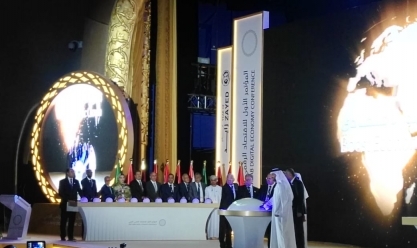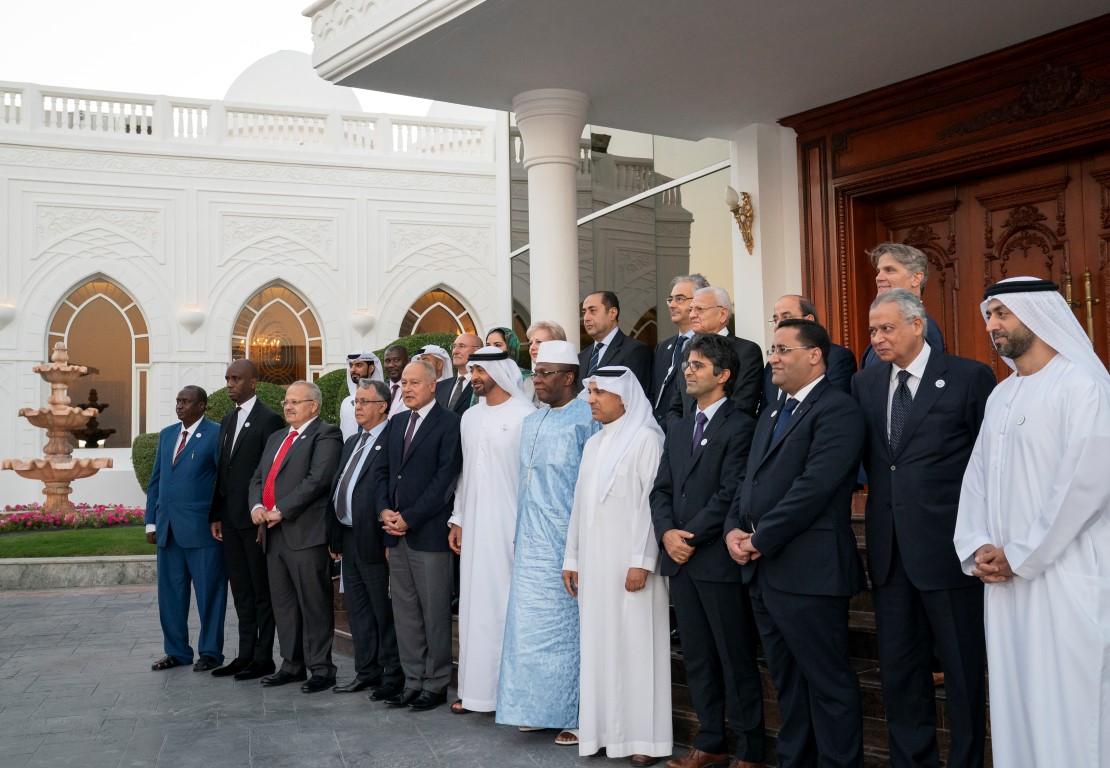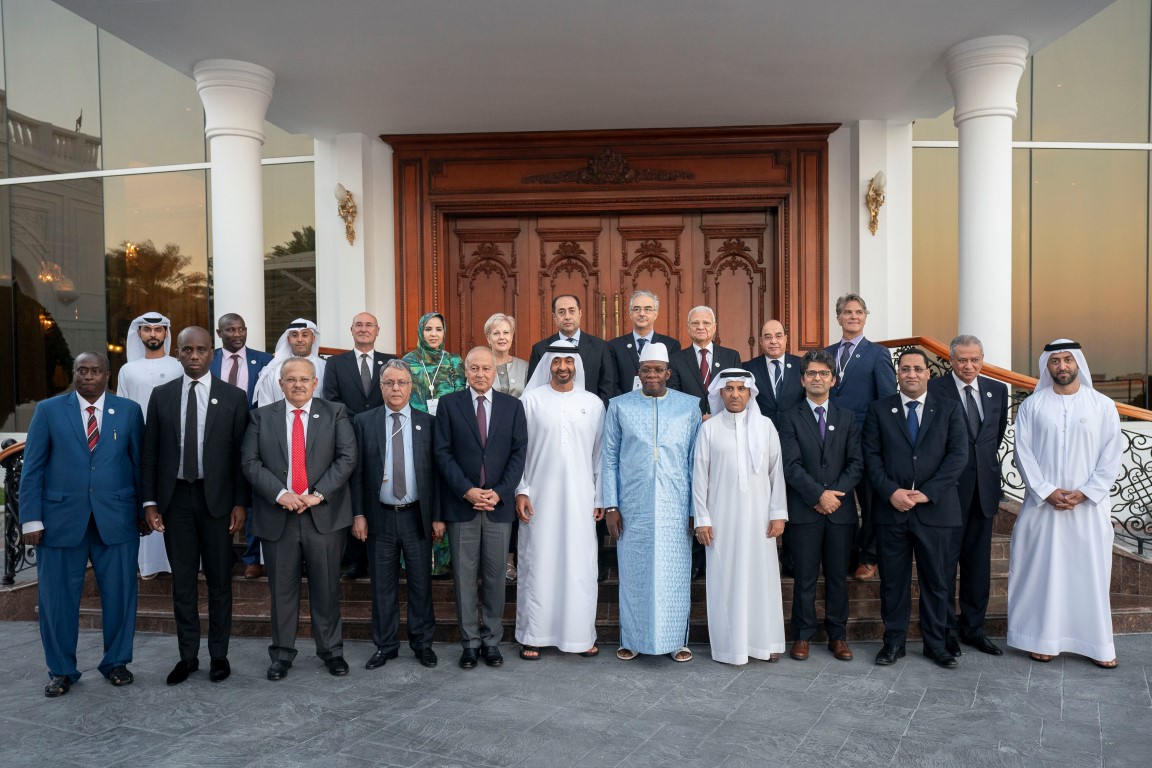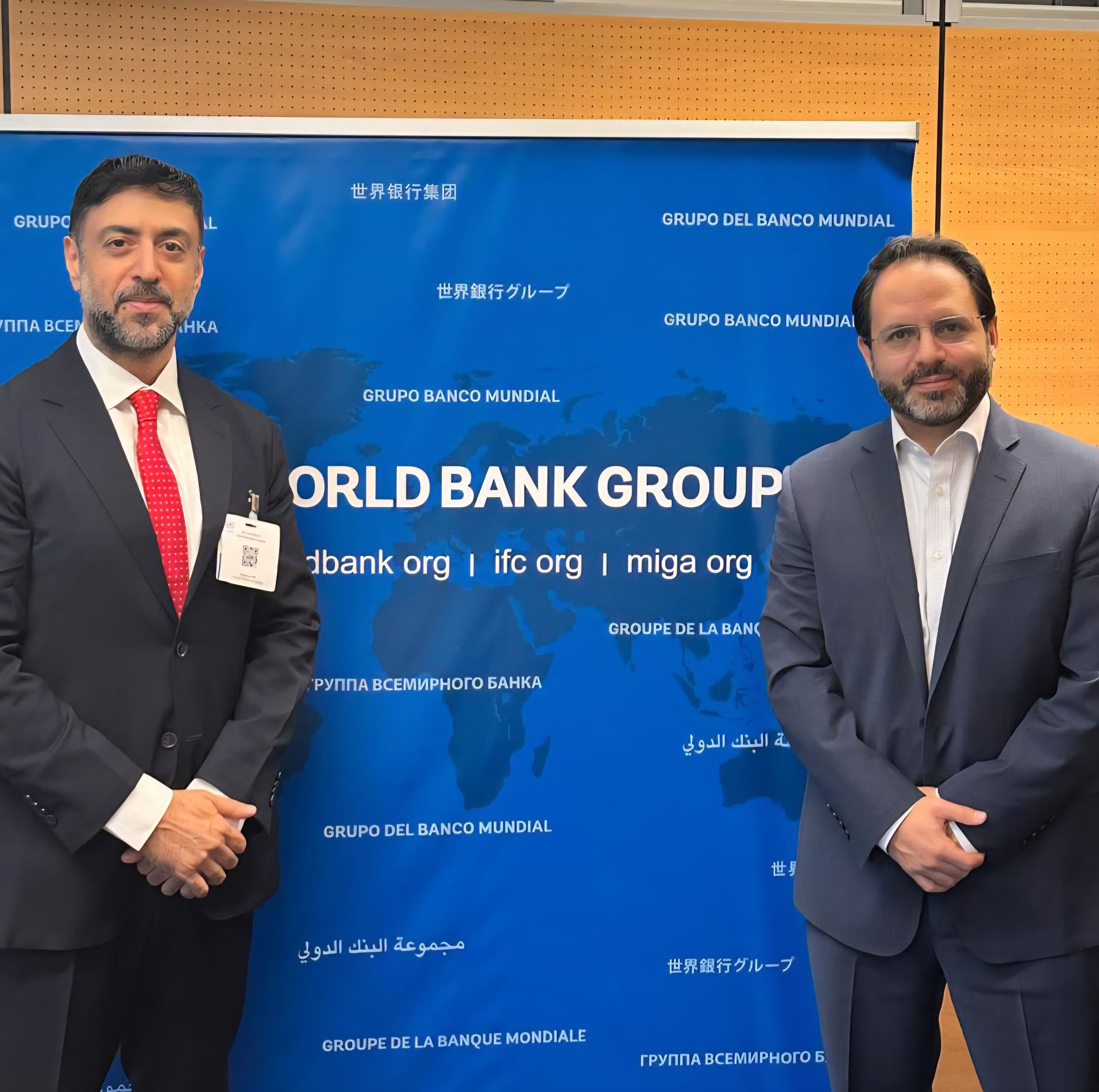Ahmed Qandil from Dubai: The First Arab Digital Economy Conference concluded its activities on Monday in Abu Dhabi. The conference was held under the patronage of Sheikh Mohammed bin Zayed Al Nahyan, Crown Prince of Abu Dhabi. The conference aimed to develop a common Arab vision for the digital economy by keeping pace with major global developments in the digital economy, unifying Arab capabilities and international expertise, and activating joint Arab cooperation to achieve a major renaissance in this field.
The size of the Arab economy
Dr. Eng. Ali Al-Khouri, Chairman of the Arab Federation for Digital Economy, said that the current size of the Arab economy is estimated at $2.5 trillion, and the digital economy is expected to contribute to doubling this figure by adding $3 trillion within 10 years if the concepts of the digital economy are leveraged and modern technology is employed in our current Arab economies.
In addition to raising the average contribution of the digital economy to the Arab GDP to 20%, he noted that the strategy is scheduled to be presented during the upcoming Arab Summit meetings in Tunisia next March, for approval by Arab leaders in preparation for its implementation.

60 Million Jobs
Al-Khouri added that, according to United Nations estimates, the Arab region needs to create 60 million jobs over the next ten years, given this challenge and other factors affecting this sector, especially since modern technologies will replace 50% of traditional jobs. This means we face a major challenge in providing job opportunities and training human resources to deal with digital transformations on the global stage.
He pointed out that the recommendations will address important strategic issues related to the development of vital sectors in the Arab region, whether related to industry, agriculture, education, health, or various development sectors. The conference recommendations will be presented to the summit scheduled to be held in Tunisia next March to adopt the Arab framework for them.
Political Stability
He pointed out that political stability requires social stability, and that social stability can only be achieved by building the foundations for economic stability. Controlling this equation is not easy to repeat. Today’s economy no longer operates on the basis of enhancing growth levels simply to raise them. Rather, it operates based on the outcomes of its components, such as education, health, and knowledge production in society, all of which represent the driving forces behind building sustainable economies.
Al-Khouri pointed out that international efforts led by international organizations such as the World Bank, the United Nations, and other organizations represent a global map of what is possible and what countries must work towards. He explained that the greatest example is the situation of European countries after World War II, and the state of devastation that brought their economies and infrastructure to the brink of collapse. These countries rallied, joined forces, and worked together, returning to square one and building on it. They operated based on the concept of shared interests, and today they have become one of the most important driving economic forces in the world.
He pointed out that strengthening the global peace system comes through spreading awareness and social education, and, most importantly, opening the doors to skill development, regional and global cooperation, and moving away from competition as a purely commercial concept to integration as a strategic concept.

Digital Economy Strategy
The first session of the Digital Economy Conference featured a film explaining the Arab Digital Economy Strategy. Christopher Ferguson, Director of National and International Research at the UK Prime Minister’s Office, and Richard Kirby, Chairman of the Strategic Review Committee, presented a report on the Arab Digital Economy Strategy Review Committee.
Ambassador Mohammed Mohammed Al-Rabea, Secretary-General of the Council of Arab Economic Unity, stated that the launch of the Arab Strategic Vision for the Digital Economy will bring about a qualitative shift in the Arab economy, not only in the economic sector, but also in various fields such as education, health, agriculture, banking, and transportation.
Al-Rabea thanked the UAE for its support in activating joint action through the digital economy, emphasizing that this support represents a shared Arab vision for the digital economy and the transfer of the UAE’s digital transformation experience to other countries in the region. It also fulfills the aspirations of Arab media and builds bridges of trust between Arab citizens and their governments.
He pointed out that the digital economy addresses the revolution in technology and information, education, culture, and even the computer and software industry. We must give it its rightful place among the alliances and blocs competing across the world.

Digital Economy Gateway
Al-Rabee’ added, “Today we have a real opportunity to advance the Arab world and complete the realization of our shared vision through the new digital economy gateway. This initiative, through which we hope to achieve a new, strong, and comprehensive Arab unity, is a golden opportunity by all standards to keep pace with the requirements of rapid economic development and enhance global economic growth levels. We have the enormous potential and resources, the dense population, and the bright Arab expertise, in addition to the new generation that has the potential to succeed in software and modern technologies.”
He stated that the digital economy produces five times the current economy, noting that the Arab digital contribution is 4% compared to 22% in global economies. The strategy includes 20 goals and 50 initiatives.
He noted that Arab countries possess enormous potential and resources, a geographical location, and a generation that aspires to excellence, is passionate about technology, and has the potential to succeed in software, electronics, and modern technologies. He noted that the new Arab generation has an instinct for technological knowledge and will, along with its global peers, represent approximately 75% of the workforce by 2025.
$600 billion
Dr. Hisham Danana, head of the research team preparing the Arab Digital Economy Strategy, said that the cost of implementing the strategy amounts to $60 billion annually, or approximately $600 billion over 10 years. He noted that the returns are more than three times the expenditure.
He explained that the first project of the strategy will begin with the issuance of unified legislation to promote inter-Arab e-commerce, while the second will focus on supporting Arabic content on the internet. He noted that the strategy has selected six sectors for development: health, agriculture, education, industry, trade, and financial services.
He emphasized that the necessary investments for implementation will be provided through partnerships with international entities and institutions, government funds, and the private sector, enhancing the success and speed of implementation of the digital economy system and the development of Arab economies.
A Bright Future
Engineer Atef Helmy, former Egyptian Minister of Communications and Information Technology, thanked the UAE for hosting and providing unlimited support for this conference, which represents a step of hope for the Arab world toward a bright future, achieving prosperity and unity among Arab countries.
He stated that the United Arab Emirates tops the list of Arab countries leading the digital economy, having achieved significant accomplishments in the field of digital transformation and digital economy, becoming a unique model worldwide in providing digital information, bringing happiness to citizens, and creating numerous economic opportunities.
Helmy predicted that the digital economy’s contribution to Egypt’s GDP would rise from 4% currently to 8% in the coming years.
He explained that the percentage of companies relying on the digital economy in Egypt is estimated at approximately 7%, compared to 18% and 15% in the UAE and Saudi Arabia, respectively.
He emphasized the Egyptian state’s efforts to move towards implementing a digital economy, noting that the establishment of the Supreme Council for Digital Society and the Supreme Council for Payments, headed by President Abdel Fattah El-Sisi, reflects this trend, as the National Payments Council plays a strategic role in enhancing performance in this area.
Economic and Social Development
He added that the digital economy is a reality in all countries of the world, not only in developed countries, but even in developing countries that are struggling economically and socially. He pointed out that the digital economy represents the path to achieving equality, excellence, and sustainable economic and social development, as it offers mechanistic solutions in various fields. In the government sector, it undoubtedly helps speed up action, promote transparency, combat corruption, and provide services to citizens in a fair and equal manner. At the business and corporate level, it represents a very important factor in increasing the efficiency of companies and technology users. Consequently, the digital economy has become a major attraction for investments in creating jobs and achieving sustainable development, thus establishing a common vision for Arab countries to benefit from each other and help other countries benefit from these successes.
Investment Opportunities
Juma Abdullah Al-Abbadi, Ambassador of the Hashemite Kingdom of Jordan to the UAE, emphasized the importance of joint cooperation through the digital economy in various fields, noting that the first digital economy conference plays a tremendous role in achieving economic development by creating real investment opportunities in all fields and sectors.
He pointed out that this pioneering conference, which brings together a large group of experts, will move us into a new era of cooperation. Economic development at the Arab level and a strong start in keeping pace with global economic modernity.
The Fourth Industrial Revolution
Adla Ragab, Professor of Economics at the Faculty of Economics and Political Science at Cairo University, said that the Faculty’s Center for Economic Studies has prepared an Arab strategy for the digital economy, which seeks to achieve convergence and collaboration between the various levels of technological advancement among countries, enabling Arab countries to collectively join the ranks of progress and the era of the Fourth Industrial Revolution.
Ragab explained that the strategy divided Arab countries into three groups in terms of technological advancement, digital literacy among their citizens, average per capita income, and human development indicators. She also created a benchmark model to identify the economic and social impacts of implementing the strategy, particularly on the growth rate of national income, reducing unemployment rates, and providing new job opportunities.











